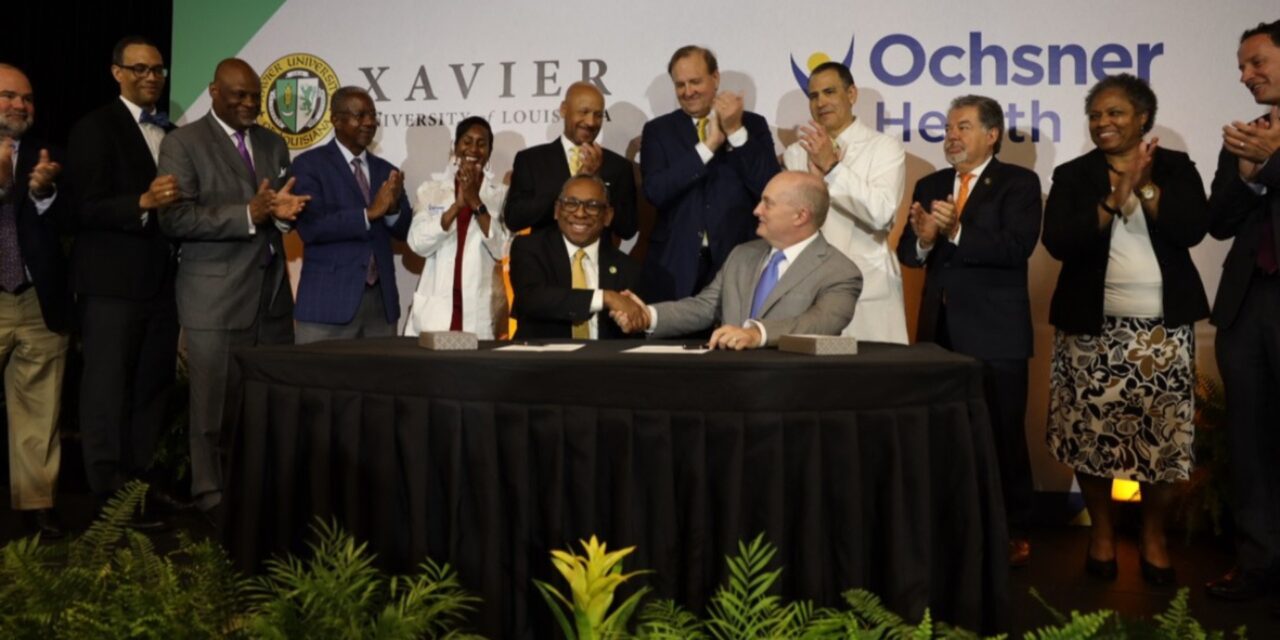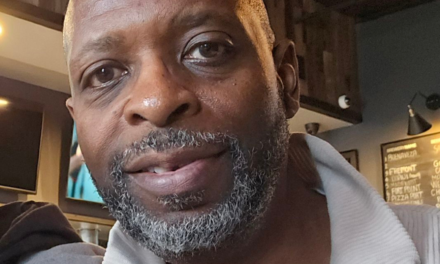
By Ariyana Griffin
AFRO Staff Writer
Xavier University of Louisiana (XULA), a catholic HBCU, is taking it a step further when it comes to increasing the number of Black physicians and fighting health disparities due to race. The institution will further their relationship with Ochsner Health to launch Xavier Ochsner College of Medicine (XOCOM).
 Xavier University of Louisiana is partnering with Ochsner Health to launch Xavier Ochsner College of Medicine in the coming years. The institution will join four other HBCU medical schools to help close the Black physician gap in the country. (Photo courtesy of Instagram / Xavier University of Louisiana)
Xavier University of Louisiana is partnering with Ochsner Health to launch Xavier Ochsner College of Medicine in the coming years. The institution will join four other HBCU medical schools to help close the Black physician gap in the country. (Photo courtesy of Instagram / Xavier University of Louisiana)
Ochsner Health is the leading nonprofit health care provider in the Gulf South. They deliver expert care at over 45 hospitals and more than 370 health and urgent care centers.
XULA is currently a top 10 producer of African American students who graduate and continue their education at medical schools, according to the Association of American Medical Colleges.
Xavier Ochsner College of Medicine will join four other HBCUs that offer medical degrees in the nation: Howard University College of Medicine, Morehouse School of Medicine, Meharry Medical College and the Charles R. Drew University of Medicine and Science.
The institution will be located downtown in Benson Tower near the Caesars Superdome. It will also have the unique opportunity to be a part of a New Orleans initiative to create BioDistrict New Orleans, an epicenter for medical and health care companies, research, biotech startups and more to help provide jobs, equity and inclusion in the medical industry.
According to Xavier, the founding of the school will allow the advancement of “medical education by addressing health disparities in diverse communities and helping fulfill the urgent need for more physicians in Louisiana and the nation.”
Dr. Reynold Verret, the president of Xavier University of Louisiana, spoke to the AFRO about the partnership.
“Physicians who are coming out of our medical schools–and others as well–will be serving a community that has a need for physicians, a need that is predominantly Black,” said Dr. Verret. “We are serving the community by forming physicians, but also in research. When you think about diseases that affect certain underrepresented communities–sickle cell is one, but there are many others that affect our population.”
There is a predicted nationwide physician shortage expected to take place by 2030 if actions are not put in place to curve the shortage. According to a study provided by Human Resources for Health BioMed Central, “an aging US population, population growth, and a greater insured population following the Affordable Care Act (ACA), healthcare demand is growing at an unprecedented pace.”
Xavier is looking to help aid the shortage in the medical industry while also helping to diversify it, officials said.
Dr. Verret said that while roughly 14 percent of the population is Black, only 5.6 percent of physicians in America are African-Americans.
“That’s been a consistent gap, even over the last 30-40 years, despite some very good efforts by many medical schools,” he said, while explaining that Xavier’s goal “is to increase reputation among practitioners to see that there are more practitioners of color within the clinic.”
Louisiana is directly affected by this shortage. According to Cicero Institute, “60 of Louisiana’s 64 parishes are health professional shortage areas (HPSAs). HPSA designations indicate areas where there are 3,500 or more patients for every one provider. 1,889,316 Louisiana residents live in an HPSA.”
The school will not just nurture the minds of higher education students, but also has a mission to provide programming for pre-collegiate students to allow them the opportunity to grow their passion.
Xavier Ochsner College of Medicine has yet to release an official launch date as the school is still awaiting accreditation from the Liaison Committee on Medical Education which can take at least three years.




